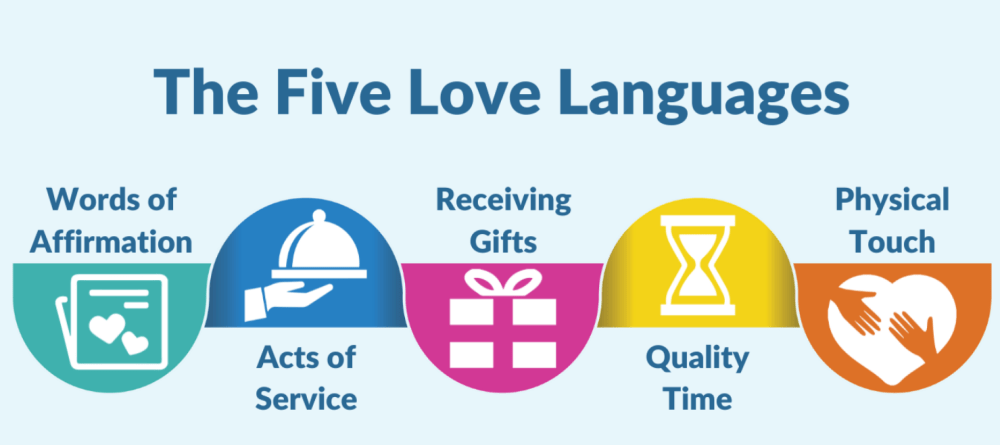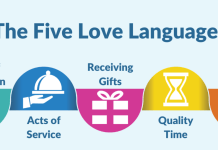Do all your actions to demonstrate love fall on deaf ears? Maybe you need to understand and learn the love language of the people around you. It is a well known fact that people react differently to the same actions in any relationship. For example the language of gifts. Some people feel loved and appreciated when they receive gifts, whereas for others it does not. Maybe just saying ‘I love you’ is more effective.
This idea gained huge attention with Gary Chapman’s book The Five Love Languages: How to Express Heartfelt Commitment to Your Mate. The book outlines five ways to express and experience love that Chapman calls “love languages”. For some people they may sound cheesy, but these languages can actually help the relationship to last.
According to Chapman, there are five universal ways that all people express and interpret love. With his more than 30 years of marriage counseling experience, Chapman has noticed specific patterns in the way partners communicate—and it turns out that most of the population express and interpret love in the same five ways.

Chapman also suggests that to discover another person’s love language, one must observe the way they express love to others, and analyze what they complain about most often and what they request from their significant other most often. He theorizes that people tend to naturally give love in the way that they prefer to receive love, and better communication between couples can be accomplished when one can demonstrate caring to the other person in the love language the recipient understands.
Now, let’s learn the five love languages and most importantly recognize your own language.
1 – Words of affirmation

Words of affirmation are compliments, appreciation, and encouragement directed at the other person. “Your hair looks gorgeous.” “You are so good at cooking!” “What a filial son you are!” are only few of the words of affirmation that you can express to your loved ones. Of course, “I love you” is also a sentence that may mean a world to you as well as your significant others. Words of affirmation are true statements that you express from the heart.
2 – Quality time

Words are not enough to express love. The time you spare for the ones you love never fails to say that you have undivided attention to them. Simply being there for them is crucial to make relationship harmonious and peaceful. Being a loved one’s main focus leaves quality timers feeling satisfied and comforted.
3 – Receiving gifts

Chapman says that for some people, what makes them feel most loved is to receive a tangible gift. This does not necessarily mean that the person is materialistic, though. In some cultures, exchanging gifts are significant aspects in marriage processions. Chapman also calls gifts as “visual symbols of love”, and he emphasizes that the monetary value of the present is rarely an issue.
4 – Acts of service

Actions speak louder than words, and people who speak the language of service want to help out their loved ones in any way possible. Doing daily chores like making beds, taking out the trash, or sweeping the floor are enough to show that you really care. Laziness, broken commitments, and making more work for them tell speakers of this language their feelings don’t matter.
5 – Physical touch

For those whose primary language is Physical Touch is very “touchy”. Hugs, holding hands, pats on the hand, and thoughtful touches on the arm, shoulder, or face are their ways to show their feelings. Those physical touches can all be ways to show excitement, concern, love, and care. Physical presence and accessibility are crucial, while neglect or abuse can be destructive and unforgivable.
Just because these are called the love languages, it does not mean that you should practice all of these and stop expressing your own love languages. According to Chapman, even though we tend to favor one language more than the others, we still enjoy traits of the others as well.




